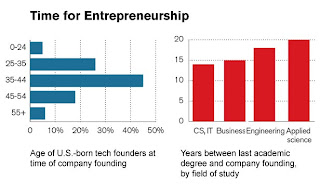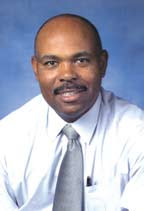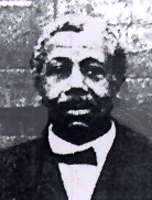African American screenwriter Tony Puryear is writing a new comics series for Dark Horse Publishing. Recently, Puryear wrote scripts for Jerry Bruckheimer's upcoming Buck Rogers big screen adaptation, and the upcoming Lady Scarface film for RKO Pictures. He is also an artist, and created the official campaign poster for Hillary Clinton's presidential bid.
Screenwriter Tony Puryear creates edgy graphic novel Concrete Park for Dark Horse Comics
February 8, 2012 in Book Previews, Media Images
 New sci-fi epic Concrete Park, written and drawn by Hollywood screenwriter, to appear in legendary anthology magazine Dark Horse Presents.
New sci-fi epic Concrete Park, written and drawn by Hollywood screenwriter, to appear in legendary anthology magazine Dark Horse Presents.
Tony Puryear wrote the 1996 Arnold Schwarzenegger smash hit Eraser, becoming the first African American screenwriter to pen a $100 million summer blockbuster. Since that time, he’s written action and sci-fi scripts for a who’s who of Hollywood A listers, from Will Smith to Mel Gibson to Jerry Bruckheimer, and adapted storied sci-fi properties like Fahrenheit 451 and Buck Rogers for the big screen. Now Puryear brings his writing and art talents to the world of graphic novels, with Concrete Park for Dark Horse Presents. Concrete Park, Tony Puryear’s first comics project, appears in Dark Horse Presents #8 from Dark Horse Comics.
“Concrete Park is a sprawling epic,” Puryear says. “It’s the sci-fi story I’ve been waiting to tell. It’s a perfect fit with Dark Horse Presents, the legendary anthology comic that served as a launch pad for innovative work by the biggest names in comics, including Frank Miller (Sin City, 300) and Mike Mignola (Hellboy). I’m honored to be in the company of these amazing world builders, and happy Mike Richardson of Dark Horse believes Concrete Park belongs with them.”
Concrete Park is a dark and provocative near-future story. It takes place in a turbulent mega-city on a distant desert planet (think Cairo or Rio in space). Young human exiles from Earth must fight to make a new world there. They are young, violent and ten billion miles from home. In its ambitious scope, it resembles nothing so much as George R. R. Martin’s A Song of Ice and Fire series, but with favelas and aliens, cops and cyborgs, ghettos and gangs, instead of castles and armies.
Concrete Park was co-created by Puryear and his wife, actress Erika Alexander (Living Single, Déjà Vu), and her brother, writer Robert Alexander, with Puryear also handling the art chores on the book.
Tony Puryear is the first African American screenwriter to write a $100 million summer movie blockbuster. His 1996 hit Eraser catapulted him into a career writing pictures for A listers Jerry Bruckheimer (Buck Rogers), Will Smith, and Oliver Stone. Puryear’s adaptation of the Ray Bradbury classic Fahrenheit 451 for Oscar-winning director Mel Gibson has circulated in Hollywood for years as a legendary unproduced script. His latest script is Lady Scarface for the new RKO Pictures.
A talented artist and designer, Puryear was recently honored when his official campaign poster for Hillary Clinton’s historic 2008 presidential run was added to the permanent collection of the Smithsonian Institution’s National Portrait Gallery.
Along with Tony Puryear, other writers and artists featured in Dark Horse Presents #8 include John Arcudi, Brian Wood, Howard Chaykin, Neal Adams, Andi Watson, Al Gordon, MJ Butler and Beau Smith, along with artists Duncan Fegredo (who drew the cover), Geof Darrow, Kristian Donaldson, Thomas Yeates, Mark Wheatley and Eduardo Barreto.


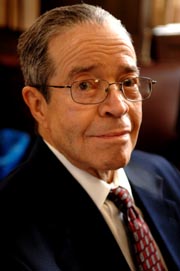



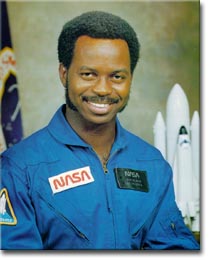



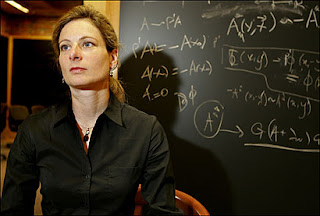
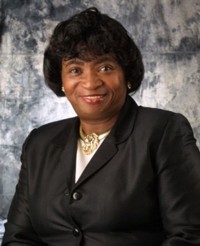
 Let’s talk about the social commentary of teen dystopian literature. What the heck is it anyway? Dystopian literature takes a social problem and extrapolates that problem to a frightening extreme. I grew up reading Ray Bradbury but today’s craze is all about the Hunger Games. Everybody is talking about it and publishers want to find the next one. Teen dystopian fiction sells big but it’s also good. I love dystopian fiction but let me back up a bit. Let me put this in perspective.
Let’s talk about the social commentary of teen dystopian literature. What the heck is it anyway? Dystopian literature takes a social problem and extrapolates that problem to a frightening extreme. I grew up reading Ray Bradbury but today’s craze is all about the Hunger Games. Everybody is talking about it and publishers want to find the next one. Teen dystopian fiction sells big but it’s also good. I love dystopian fiction but let me back up a bit. Let me put this in perspective.
